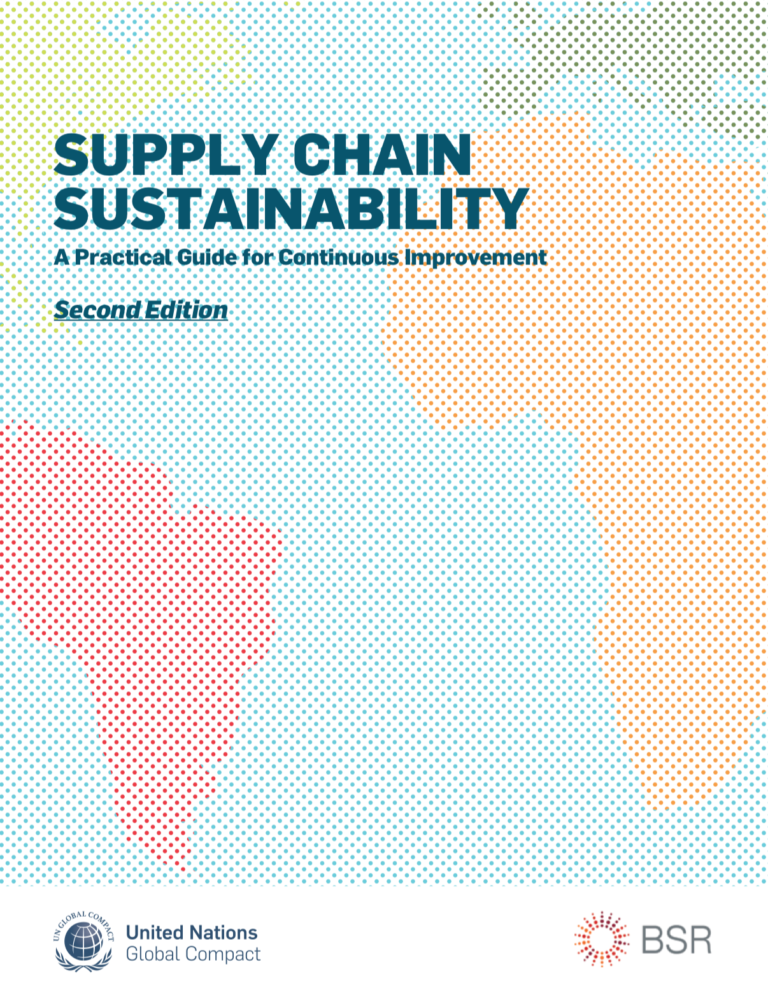This second edition of Supply Chain Sustainability: A Practical Guide to Continuous Improvement is aimed at reflecting the new and emerging trends in this area since its original launch in 2010 as well as ensuring the inclusion of and alignment with relevant standards and initiatives. Featuring numerous updated and new examples of good corporate practice, the guide remains a valuable tool to provide companies with practical guidance on how to develop a sustainable supply chain programme based on the values and principles of the UN Global Compact and assists businesses in setting priorities for action that will lead to continuous performance improvement.
The guide is intended to help companies of all sizes, both those who are new to and those experienced in supply chain sustainability, to apply the UN Global Compact Ten Principles throughout their supply chains and to integrate sustainability into their business strategies. It is designed for individuals with oversight of and input on corporate sustainability, procurement and supply chain priorities and practices. Case studies and examples throughout the guide provide an overview of how companies have implemented supply chain sustainability programmes.

